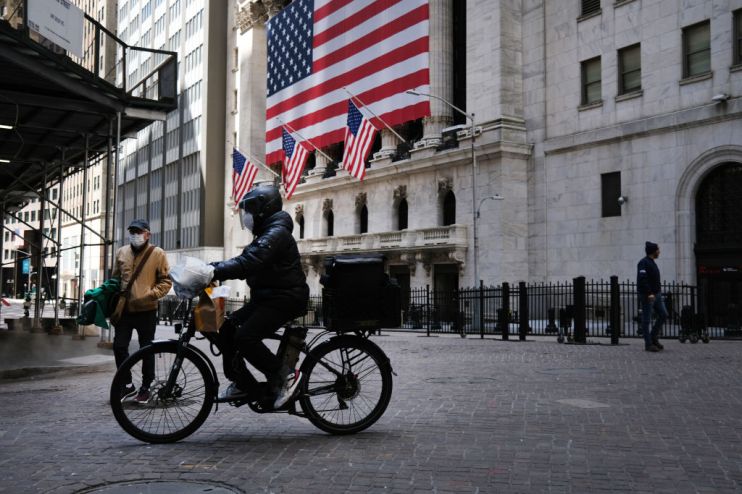Oil prices surge but global stocks drop over coronavirus fears

Global stocks have slipped lower even as oil prices have rebounded, as investors focus on the economic fallout from coronavirus.
Oil prices have jumped after US President Donald Trump yesterday announced Saudi Arabia and Russia would cut production. Brent crude rose 10.8 per cent to $33.18 per barrel. US crude rose 4.4 per cent to $26.43 per barrel.
Despite the price rise holding up energy stocks, bad economic data weighed on investors today.
On Wall Street, the Dow Jones index was down one per cent in early trading while the S&P 500 was 0.8 per cent lower. The Nasdaq was also down 0.8 per cent.
European stocks were also lower. Britain’s FTSE 100 was 0.9 per cent lower and Germany’s Dax was down 0.4 per cent. The pan-European Stoxx 600 had fallen 0.8 per cent.
Jobs data released before Wall Street open showed that US firms laid off 701,000 workers in March.
Economists said the worst is yet to come, however. Consultancy Oxford Economics said April could see 20m workers laid off.
Survey data out this morning showed that the Eurozone private sector suffered its worst month on record in March. UK private sector activity also fell at the fastest rate on record.
As investors sold stocks, they flocked to the dollar. The greenback is seen as a safe haven unlikely to lose its value at times of stress. The dollar index rose 0.5 per cent.
Stocks rally runs out of steam
Global stocks surged last week but many analysts are now dubbing the rise a “bear rally”. This is when stocks rise for a while, as some investors believe the bottom of the market has been reached, before resuming their fall.
Investors were cheered yesterday when Trump said Saudi Arabia and Russia would up oil production.
Saudi Arabia has ramped up production as part of a price war with Russia after talks over cuts broke down. Oil prices have roughly halved since the start of the year.
But fears over the economic effects of coronavirus came to the fore again today with the release of a raft of economic data.
Coronavirus has now infected more than 1m people around the world. The US and Europe are the new hotspots for the virus. This has led to strict lockdown measures which have caused economy activity to plummet.
“The pandemic has taken us into uncharted waters,” said Paul Ashworth, chief US economist at Capital Economics.
He said the US unemployment rate could well surge to 10 per cent from 3.5 per cent in February as tens of millions of Americans lose their jobs.
Ratings agency Fitch yesterday said it expects a “deep global recession”. Brian Coulton, Fitch’s chief economist, added that the recovery could be slow.
“Our baseline forecast does not see GDP reverting to its pre-virus levels until late 2021 in the US and Europe,” he said.